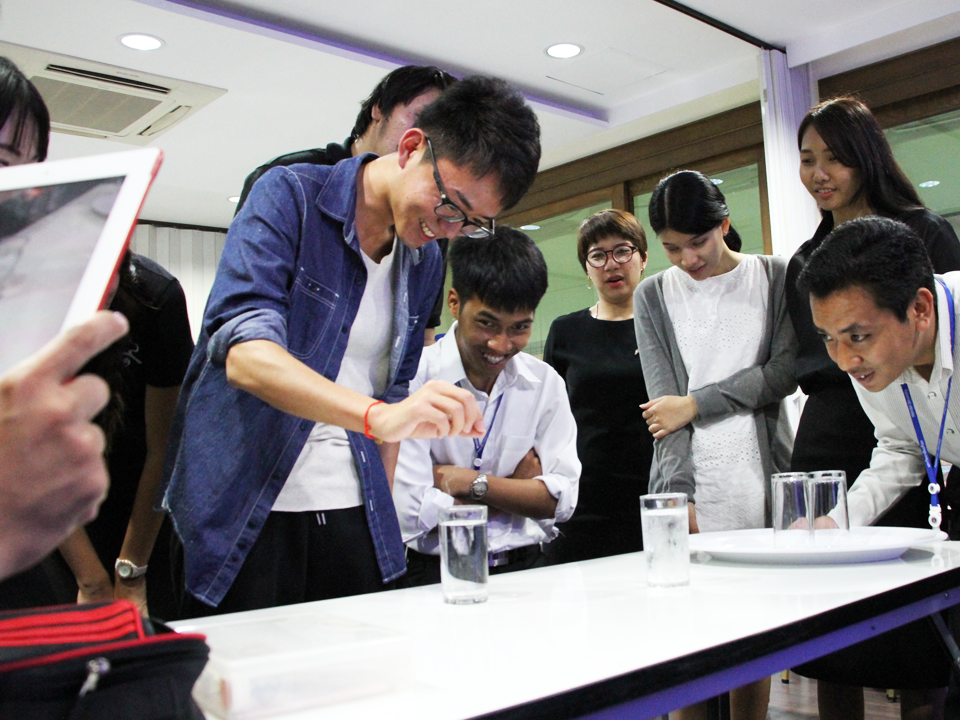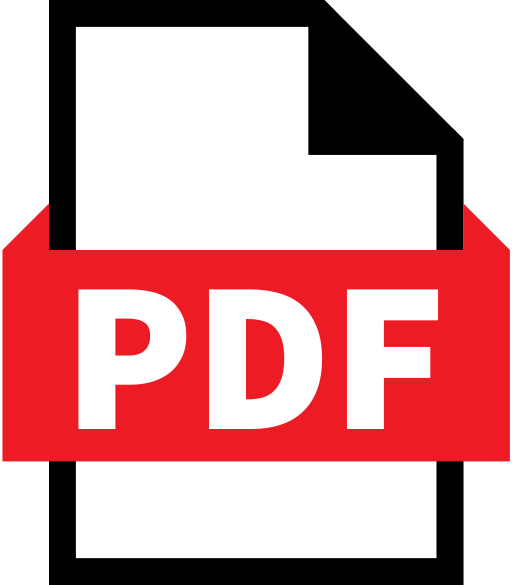
To produce graduates who are able to research and apply educational innovations, to manage learning in appropriate way and correspond to social context, and to effectively and efficiency transform knowledge in science, mathematics, and technology.
Degree Designation
MASTER OF SCIENCE(SCIENCE AND TECHNOLOGY EDUCATION)
Additional advantages of the programme
To produce graduates who are able to research and develop educational innovations, to manage learning in appropriate way and correspond to social context, and to effectively and efficiency transform knowledge in science, mathematics, and technology.
Curriculum Structure for Plan A2
| Prerequisite Course | No Credit |
| Required Courses | 15 Credits |
| Elective Courses not less than | 9 Credits |
| Thesis | 12 Credits |
| Total not less than | 36 Credits |
Job option after graduation
– Teacher and professional in science, mathematics, and technology education
– Educator and researcher in science, mathematics, and technology education
Curriculum Committee
- Assistant Professor WARARAT WONGKIA (ACTING PROGRAMME DIRECTOR)
- Associate Professor KHAJORNSAK BUARAPHAN
- Assistant Professor WATCHAREE KETPICHAINARONG
- Assistant Professor SUCHAI NOPPARATJAMJOMRAS
- Assistant Professor PIROM CHENPRAKHON
- Assistant Professor MONAMORN PRECHARATTANA
- Assistant Professor NAMKANG SRIWATTANAROTHAI
- Assistant Professor PIYACHAT JITTAM
- Lecturer SUTHIPORN SAJJAPANROJ
- Lecturer TINNAPOB PHENGPOM
- Lecturer SUPAN YODYINGYONG
- Lecturer PARAMES LAOSINCHAI
Qualifications for Plan A2 (Thesis & Courses)
- Hold a Bachelors degree in any field of basic science, engineering, education, art (major in science, mathematics, and technology), and health science
- Have a minimum grade point average of 2.5
- Have qualified English skills in listening, speaking, reading, and writing
- Exemption from the above conditions may be granted by the Programme Committee and the Dean of Faculty of Graduate Studies under exceptional circumstances
Plan A2
Prerequisite Courses
(2 Credits)
National Education Act; National Education Plan; educational curriculum; educational system; learning standards; content; learning in the 21st century; transformative education; contemplative education; extra-curricular activity; educational technology; learning community
(2 Credits)
Components of educational research; database for educational research; information retrieval for research; literature review; basic statistics for educational research; citation and reference
(3 Credits)
Cell structure and function; life and information flow in cell, energy flow in biosystem; cell signaling; cell division; cellular differentiation; cell death and development
Required Courses
(3 Credits)
How students learn; learning theory; pedagogical content knowledge; effective teaching and learning approaches; instructional design theory and model; learner analysis; learning level and assessment; classroom management; principle, concept, and guidelines for constructing lesson plan; ethics in teaching and professional ethics; micro-teaching
(2 Credits)
Nature, role, relationship, and methodology of science, mathematics, and technology; origin and evolution of knowledge in science, mathematics, and technology; relationship between nature of science and learning science; self-evaluation of in-depth understanding in science, mathematics, and technology; morals and ethics in the construction of knowledge in science, mathematics, and technology; nature of mathematics, physics, chemistry, biology, and computer science
(3 Credits)
Principle, concept, design, application, adaptation and evaluation of innovation for learning science, mathematics, and technology; morals and ethics in the development of Innovations in science and technology education; morals and ethics in using innovation to improve learning in science, mathematics, and technology
(3 Credits)
Research paradigms and methodology; quantitative research; qualitative research; mixed methods research; research question; research design; research instruments; data analysis; ethics in science and technology education research; analysis of science and technology education research; classroom action research
(1 Credit)
Current issue in science and technology education; morals of science and technology educator; research for promoting science, mathematics, and technology learning; ethics in using and publishing academic work
(1 Credit)
Current issue in innovative learning and country development; special topic concerning innovative instructional learning media; special topic concerning innovative learning in Thai society context; ethics in using and publishing leaning innovation; organizing academic seminar
(2 Credits)
Principle of measurement and evaluation for improving learner; formative assessment; summative assessment; authentic assessment; principle and practice in measurement and evaluation of cognitive, affective, and psychomotor domains; quality of measurement and evaluation tool; ethics in measurement and evaluation
Elective Courses
(3 Credits)
Analysis of research in science and technology education; designing of mini research project in science and technology education; components in research development; data collection and analysis; ethics in educational research; writing and presenting research work; teaching an interdisciplinary project
(3 Credits)
Information and communication technology and learning in the 21st century; concept of using modern information technology (IT) in learning and teaching; analysis of case study on using modern IT in learning activity; learning media design; application for authoring learning media; learning media development and evaluation
(2 Credits)
Relationship between technology and educational reform; relationship between technology, specific content, and pedagogy; role of technology in the development of learning process; using emerging technology in learning and teaching; technology for context-aware learning; ethics in using educational technology for learning; technology for measurement and evaluation in education
(3 Credits)
Nature of learning chemistry; misconceptions in learning chemistry; pedagogical content knowledge for teaching chemical bonding, chemical reactions and stoichiometry, chemical thermodynamics, chemical kinetics, chemical equilibrium, electrochemistry, nanochemistry, green chemistry, biocatalyst, solar cell, spectroscopy techniques
(3 Credits)
Nature of learning biology; misconception in biology; pedagogical content knowledge for teaching cell biology, biodiversity, evolution, biochemistry, modern genetics, bionanotechnology, biomass and bioenergy, plant biology, and biomedicine; emerging fields of biological sciences; professional ethics and ethics in biology teaching
(3 Credits)
Nature of learning physics; misconceptions in physics; pedagogical content knowledge for teaching mathematics for physics, mechanics, thermodynamics, electricity and magnetism, light and optics, nuclear physics, relativity
(3 Credits)
Nature of learning mathematics; misconceptions in mathematics; pedagogical content knowledge for teaching probability and statistics, logic and mathematical proof, real and complex numbers, geometry, algebra, calculus
(3 Credits)
Nature of learning computer education; transformation of computer education and development of today’s computer education curriculum; misconceptions in computer education; pedagogical content knowledge for teaching algorithm, programming, data structure, simulation, artificial intelligence, microcontroller
(2 Credits)
Fundamental psychology; developmental psychology; educational psychology; cognitive psychology; individual differences; inclusive education; multiple intelligences; educational guidance; counselling; philosophy, concept and theory in education, religion, economy, society and culture; educational concept and strategy for sustainable development
Thesis
(12 Credits)
Identifying science and technology educational research proposal; conducting research with ethics; analyzing research findings; presenting and publishing research in academic journals or conference proceedings; ethics for presenting and publishing research findings
Plan A2
| Summer Semester | |||
– SCID 500 Cell and Molecular Biology 3(3-0-6) – ILSE 603 Basic Knowledge in Education 2(2-0-4) – ILSE 607 Basic Knowledge for Educational Research 2(2-0-4) – No credit | |||
|
– ILSE 600 Instructional Science 3(3-0-6) – ILSE 608 Evolution of Science, Mathematics, and Technology 2(2-0-4) – ILSE 616 Research in Science and Technology Education 3(3-0-6) – ILSE 623 Seminar in Science and Technology Education 1(1-0-2) – Elective Course 3 credits Total 12 credits |
– ILSE 613Innovations in Science and Technology Education 3(1-4-4) – ILSE 624 Seminar in Innovative Learning 1(1-0-2) – ILSE 655 Measurement and Evaluation in Education 2 (1-2-3) – Elective Course 6 credits Total 12 credits | ||
|
Proposal examination – ILSE 698 Thesis 6(0-24-0) Total 6 credits |
– ILSE 698 Thesis 6(0-24-0) Total 6 credits Thesis examination and Graduation |
||
Plan A2
- Complete the study within the plan.
- Complete all courses in the curriculum (courses at least 24 credits and thesis 12 credits) and obtain the overall GPA of at least 3.00.
- Pass the English proficiency requirement announced by the Faculty of Graduate Studies, Mahidol University.
- Pass the thesis examination and submit the complete thesis and other requirements announced by the Faculty of Graduate Studies, Mahidol University.
- Participate work and life skills courses requirements announced by the Faculty of Graduate Studies, Mahidol University.
- Submit a document that shows that the thesis or a part of the thesis is published or accepted for publication in a journal or an academic printed matter which has a peer review or is presented in an academic conference which has a peer review and proceedings.


